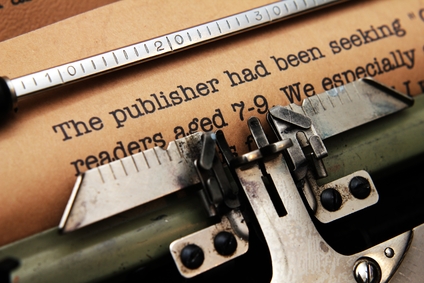A Publisher’s role?
 Publishers are as significant to authors as water is crucial for survival. In the last few years, however, technology has allowed some self-published authors to become relatively known and the jury is still out as to how that may change in the near future. Currently, though, a publisher is the support that can make an author successful or not successful in the majority of cases. Very few books have become popular without publishing-house backing. It can be done but it takes a lot of effort by the author.
Publishers are as significant to authors as water is crucial for survival. In the last few years, however, technology has allowed some self-published authors to become relatively known and the jury is still out as to how that may change in the near future. Currently, though, a publisher is the support that can make an author successful or not successful in the majority of cases. Very few books have become popular without publishing-house backing. It can be done but it takes a lot of effort by the author.
Many times the term publisher and editor are used interchangeably but they actually perform two different functions. A publisher is the company or entity that hires editors to read and find books for publication. If the publishing company is small, it can be that the editor and the agency are one and the same but in big publishing companies this is not the case. In large publishing companies there are layers of staff and departments that comprise this conglomerate. In small publishing companies it can be a handful of staff.
In previous eras, going through a big publishing house was the way to get your book published. Today, there is an array of smaller publishing agencies that have opened up and this can most likely be attributed to technology, the internet and global marketing; although, the larger publishing houses still continue to claim the bigger slice of the pie.
Simply stated, a publisher’s main function is to select a book that can potentially sell and generate money, produce the selected book and then market and distribute throughout. There are, of course, many elements to making this happen.
From a macro point-of-view, the editing, manuscript development and marketing departments are the essence of what makes up a publishing company. Within those divisions can be a myriad of subdivisions and roles. There are Planning Divisions, Acquisition Divisions, Editing Divisions, Marketing Divisions, Accounting divisions, Designing divisions, and many others. All these divisions are usually comprised of many staff roles. Staff roles could be those of editor, sponsoring or commissioning editor, acquisition editor, manuscript or copy editor, developing editor, line editor, or managing editor, etc. Each of these staff roles has specific job functions but in some publishing houses they could be combined. Each agency is set up differently. An editor in one company may wear many hats. That editor could be the acquisition editor, a sponsoring or commissioning editor and possibly even a line editor. In another company these roles could be split between employees.
What are the job functions of these roles?
 An acquisition editor is a person who reviews and evaluates many books in order to select one that can sell and bring in revenue for a publishing company. This is the person who is in contact with the author. It is also the acquisition editor’s responsibility to recommend this project to be considered for publication. This person quickly becomes the go-to person for the author. This acquisition editor is usually the person who provides guidance to the author and will often make recommendations as to what should be redone, included or excluded from the project. To add complication to the mix, many times there are different levels of acquisition editors with different salary structures and this may blur the lines on roles and responsibilities. Sometimes they are called sponsoring or commissioning editors or assistant editors or associate editors depending on the academic merits obtained within companies. Because of these variations from publishing house to publishing house, many times outside authors and agents become confused as to who does what in a particular company.
An acquisition editor is a person who reviews and evaluates many books in order to select one that can sell and bring in revenue for a publishing company. This is the person who is in contact with the author. It is also the acquisition editor’s responsibility to recommend this project to be considered for publication. This person quickly becomes the go-to person for the author. This acquisition editor is usually the person who provides guidance to the author and will often make recommendations as to what should be redone, included or excluded from the project. To add complication to the mix, many times there are different levels of acquisition editors with different salary structures and this may blur the lines on roles and responsibilities. Sometimes they are called sponsoring or commissioning editors or assistant editors or associate editors depending on the academic merits obtained within companies. Because of these variations from publishing house to publishing house, many times outside authors and agents become confused as to who does what in a particular company.
Line editors are just that. They review manuscripts line by line for corrections and sometimes do some minor checking for facts. Because of the costly expense of this type of editing, it is mostly used for trade type books.
Manuscript and copy editors review for style, grammar, punctuation or for unclear or missing information. Depending on the project the corrections can be extensive or minimal.
Developmental editors work mostly in textbook-type publishing arenas and assist with organizing projects and eliminating chaos.
Managing editors are usually in supervisory-type roles. They manage the schedules between indexers, proofreaders or freelance copy editors as well as ensuring everything aligns with the printing schedule.




